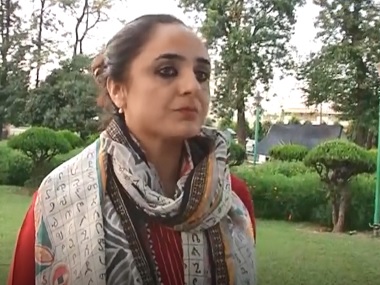The Kathua rape and murder case saw an unexpected turn of events earlier this week when the father of the 8-year-old victim filed an application in court saying that he wished to withdraw lawyer Deepika Rajawat from the case. Speaking to Firstpost, a relative of the victim, who has been involved in the legal battle to secure justice for her, said that the family does not have any complaints against Rajawat, but maintained that the lawyer had only appeared in court two times. “For some time now, we have been hearing news that advocate Rajawat has been facing abuse and threats. She has also said that she fears that her life may be in danger, and that she has been threatened with sexual assault. In addition to this, we found that she had only appeared in court a couple of times, although the case is being heard on a day-to-day basis in Pathankot. Keeping this in mind, we thought it would be better to free her from the case. We do not want any harm to come to her on account of the case that we are fighting in court,” uncle of the rape victim. [caption id=“attachment_4429979” align=“alignleft” width=“380”] File image of Deepika Singh Rajawat. News18[/caption] He further said, “There is no question of having any complaints about her (Rajawat). Our concern is that we should be able to secure justice for the child (the victim in the case).” Describing the difficulties faced by the family after the incident of rape and murder, he said, “Tensions with the local people have certainly increased after the incident. The Hindu community in our neighborhood are very good people, but there a few with vested interests who do not wish to see brotherhood and amity between different communities.” Reacting to the application of the victim’s father withdrawing his power of attorney, Rajawat said that the family had not spoken to her before filing the plea in court. She further said, “I began appearing for the family in February, when I filed a writ petition before the high court seeking that it should monitor the investigation which was being conducted by the crime branch. It was after the high court began supervising the progress of the case that several arrests were made. In the Supreme Court as well, I appeared along with advocate Indira Jaising, seeking that the trial in the case should be shifted out of Kathua. Now that the trial has begun, the state government has appointed three public prosecutors to conduct the case, and as the lawyer for the victim, there is not much of a role that I can play now. Hence, I decided to focus on the cases that I was handling in Jammu.” Subsequent to the filing of the application in the court in Pathankot by the victim’s father, Rajawat has faced abuse, on social media. She was also criticised for a statement she put out on Twitter saying, “I was there with them when no one was. Now since the rainy days have passed, they are winding up with me just because I could not regularly attend the trial which is taken care of by senior criminal lawyers…I don’t blame them; it is the human tendency which travels in genes. (sic)"
I was there with them when no one was. Now since the rainy days have passed, they are winding up with me just because I could not regularly attend the trial which is taken care of by senior criminal lawyers.
— Deepika Pushkar Nath (@DeepikaPNath) November 14, 2018
I don't blame them. it is the human tendency which travels in genes.
Victims’ right to representation in trials — a far cry? The recent development in the Kathua rape and murder case has also brought focus on an often-ignored aspect of the criminal justice system in India — rights of victims during trials. In India, victims (or their families) have little say in the progress of a trial, as the case is conducted by a public prosecutor (who represents the State) and a defence lawyer (who represents the accused.) Section 301(2) of the Code of Criminal Procedure (CrPC) provides for the possibility of appointing a lawyer to assist the public prosecutor in conducting a trial, but severely limits such a lawyer’s role. According to the provision, such a lawyer can present written arguments after the evidence is closed in the case, with the permission of the court. Ashif Sheikh, founder of NGO Jan Sahas, spoke about the need for victims of crime to be represented in court. The organisation, among other things, works on access to justice and has a team of lawyers who assist public prosecutors during trials. Shekh says, “Most people have to depend on the public prosecutors to get justice, and these officers have a heavy burden of cases to deal with. It is impossible for them to remember the details of each case. Often, prosecutors manage to read case files of a criminal trial only a couple of minutes before entering the court." Sheikh adds, “As of now, the law does not allow a victim’s lawyer to present oral arguments in court. However, lawyers who assist prosecutors can help victims make statements in court, and explain the contents of the chargesheet to them. Sometimes, the police leave loopholes in the chargesheet, and this problem can be addressed if victims know what is written in the document. Measures like these can help bring more cases to justice.”


)

)
)
)
)
)
)
)
)



